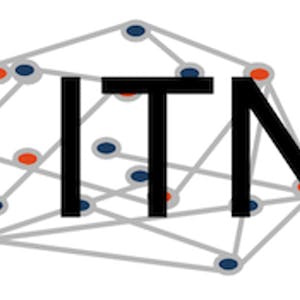Advanced Reproducibility in Cancer Informatics
About this Course
This course introduces tools that help enhance reproducibility and replicability in the context of cancer informatics. It uses hands-on exercises to demonstrate in practical terms how to get acquainted with these tools but is by no means meant to be a comprehensive dive into these tools. The course introduces tools and their concepts such as git and GitHub, code review, Docker, and GitHub actions. Target Audience The course is intended for students in the biomedical sciences and researchers who use informatics tools in their research. It is the follow up course to the Introduction to Reproducibility in Cancer Informatics course. Learners who take this course should: - Have some familiarity with R or Python - Have take the Introductory Reproducibility in Cancer Informatics course - Have some familiarity with GitHub Motivation Data analyses are generally not reproducible without direct contact with the original researchers and a substantial amount of time and effort (BeaulieuJones, 2017). Reproducibility in cancer informatics (as with other fields) is still not monitored or incentivized despite that it is fundamental to the scientific method. Despite the lack of incentive, many researchers strive for reproducibility in their own work but often lack the skills or training to do so effectively. Equipping researchers with the skills to create reproducible data analyses increases the efficiency of everyone involved. Reproducible analyses are more likely to be understood, applied, and replicated by others. This helps expedite the scientific process by helping researchers avoid false positive dead ends. Open source clarity in reproducible methods also saves researchers\' time so they don\'t have to reinvent the proverbial wheel for methods that everyone in the field is already performing. Curriculum The course includes hands-on exercises for how to apply reproducible code concepts to their code. Individuals who take this course are encouraged to complete these activities as they follow along with the course material to help increase the reproducibility of their analyses. **Goal of this course:** To equip learners with a deeper knowledge of the capabilities of reproducibility tools and how they can apply to their existing analyses scripts and projects. **What is NOT the goal of this course:** To be a comprehensive dive into each of the tools discussed. . How to use the course Each chapter has associated exercises that you are encourage to complete in order to get the full benefit of the course This course is designed with busy professional learners in mind -- who may have to pick up and put down the course when their schedule allows. In general, you are able to skip to chapters you find a most useful to (One incidence where a prior chapter is required is noted). Each chapter has associated exercises that you are encourage to complete in order to get the full benefit of the courseCreated by: Johns Hopkins University

Related Online Courses
Are you a builder who is interested in using Amazon Elastic File System (Amazon EFS)? Do you want to understand how to get started with Amazon EFS? Then, this course is for you! Amazon EFS provides... more
This specialization is intended for people seeking to understand better the role of a certified nursing assistant (CNA). You\'ll learn about the tasks and nursing care provided by CNAs and how they... more
This Specialized Program is aimed at leaders who are interested in consolidating their leadership and critical thinking skills within an organization, positively impacting organizational behavior... more
Economic policy affects every citizen. And economic policymaking is best done as a collaborative process with a wide range of stakeholders. This course brings an understanding of the relevance and... more
Many courses in the diversity, equity and inclusion field acquaint the learner with definitions and concepts that are commonly shared in the field but not much strategy to implement such efforts.... more








